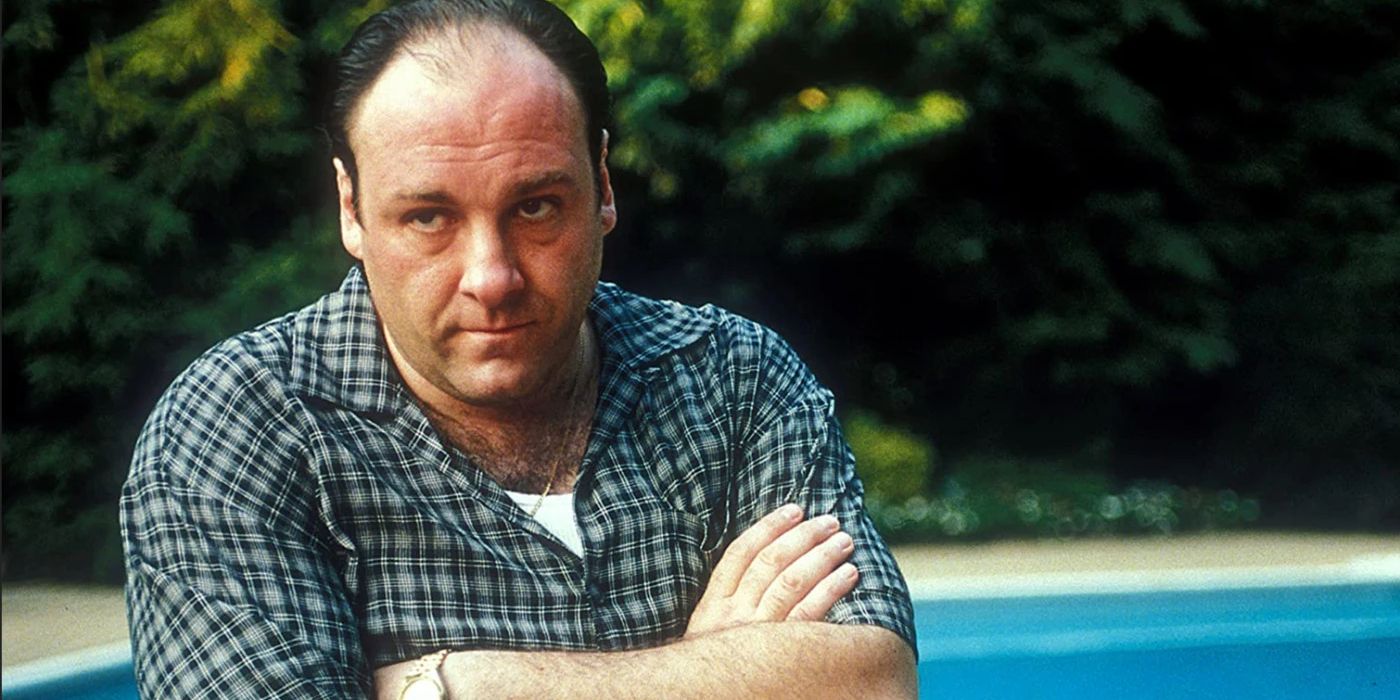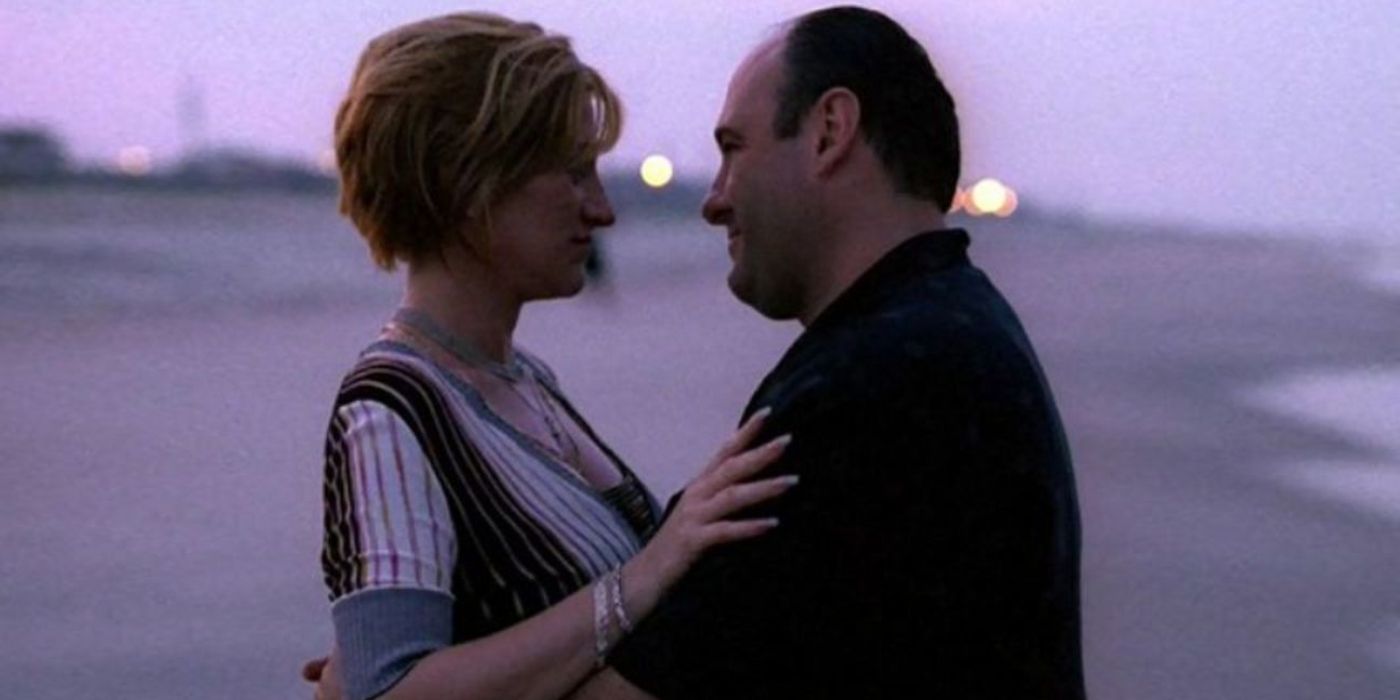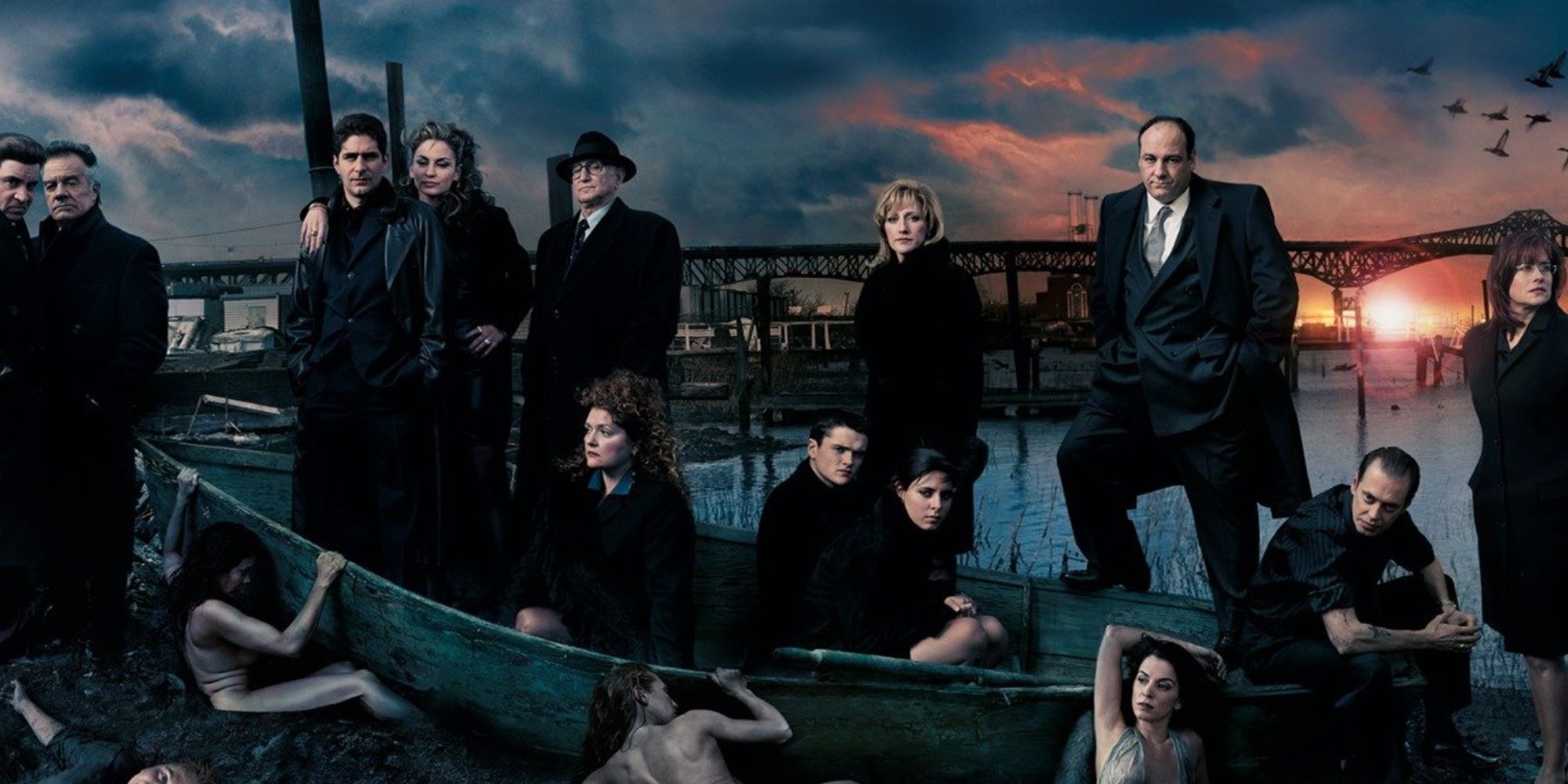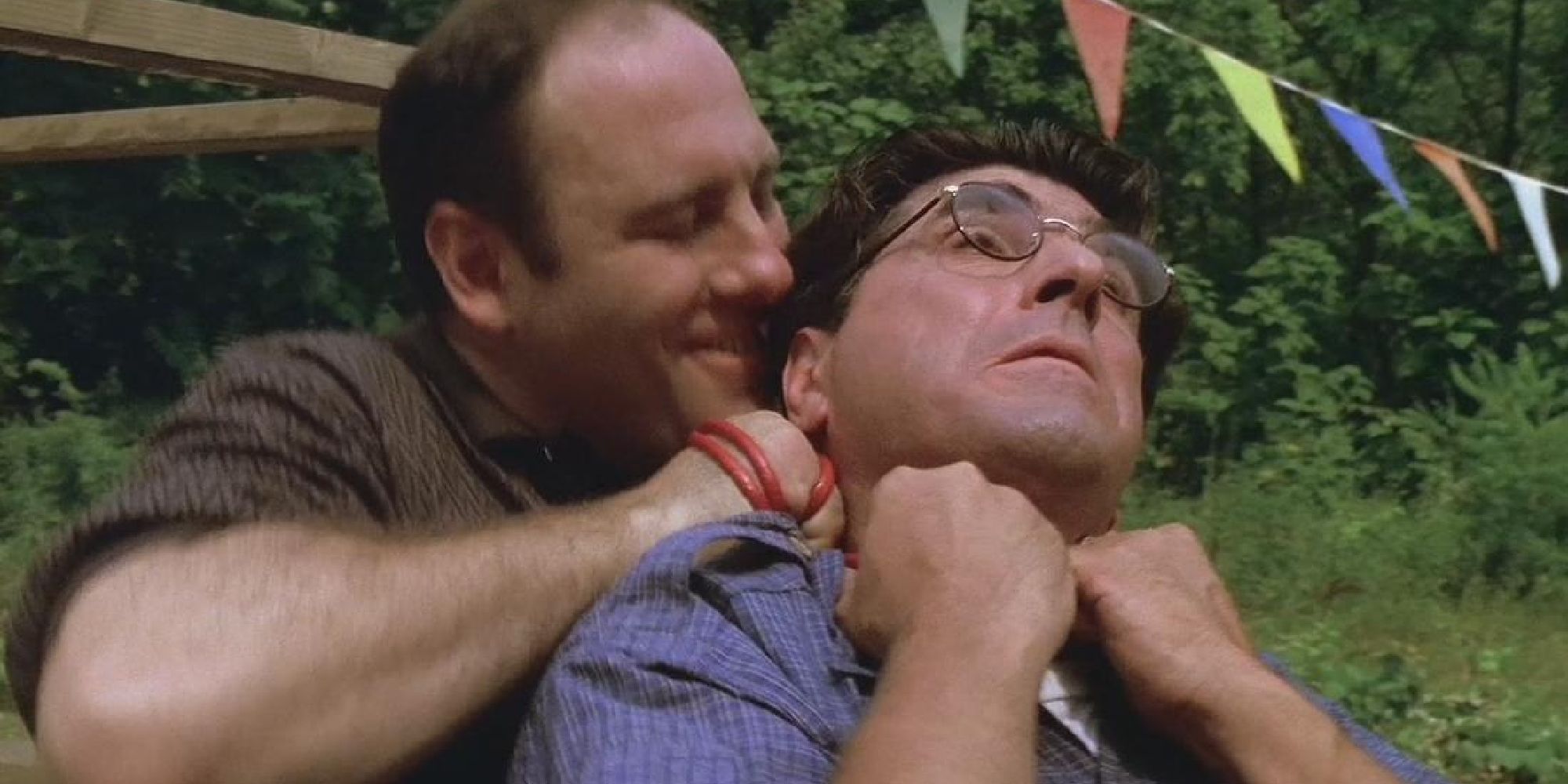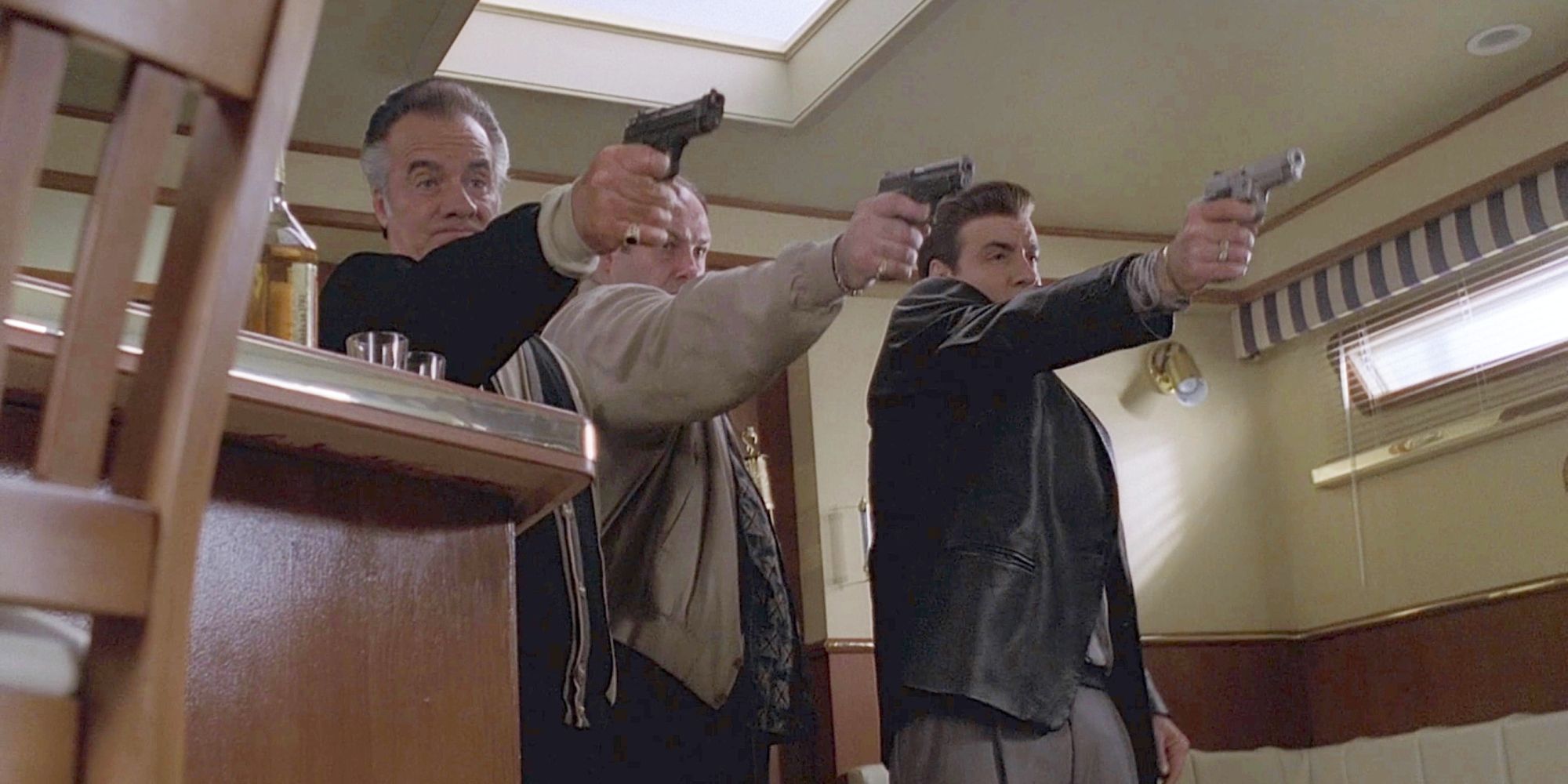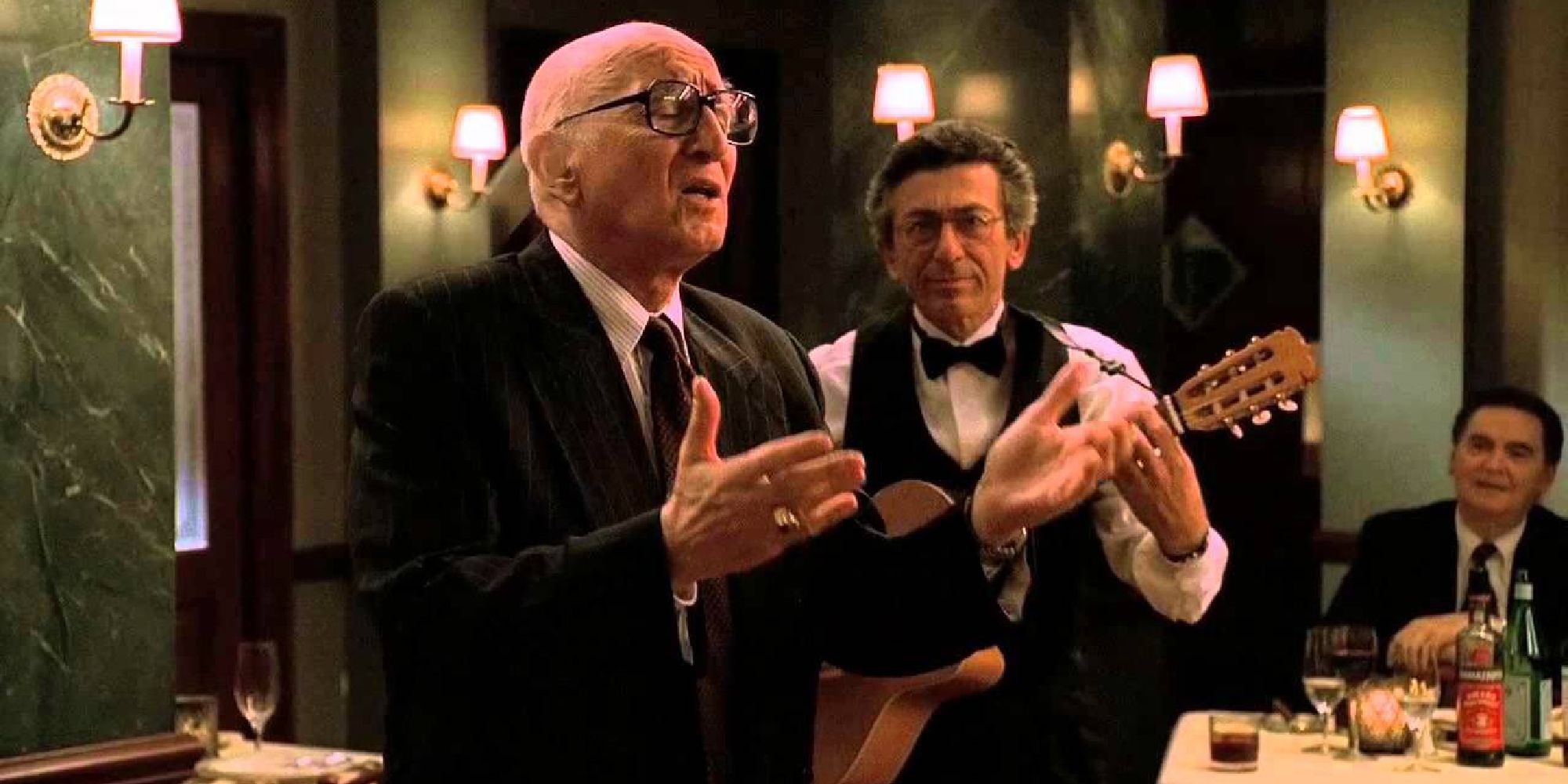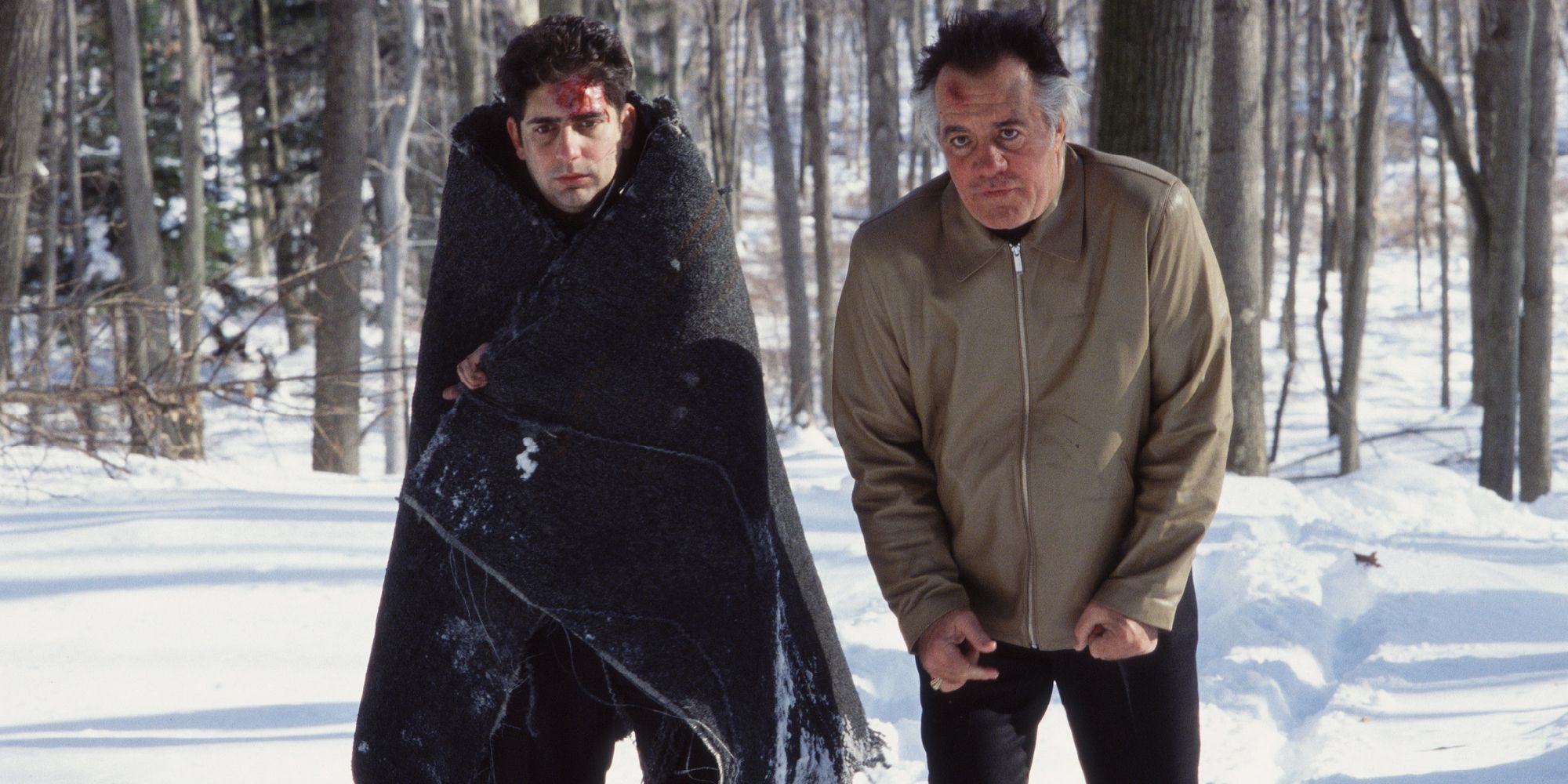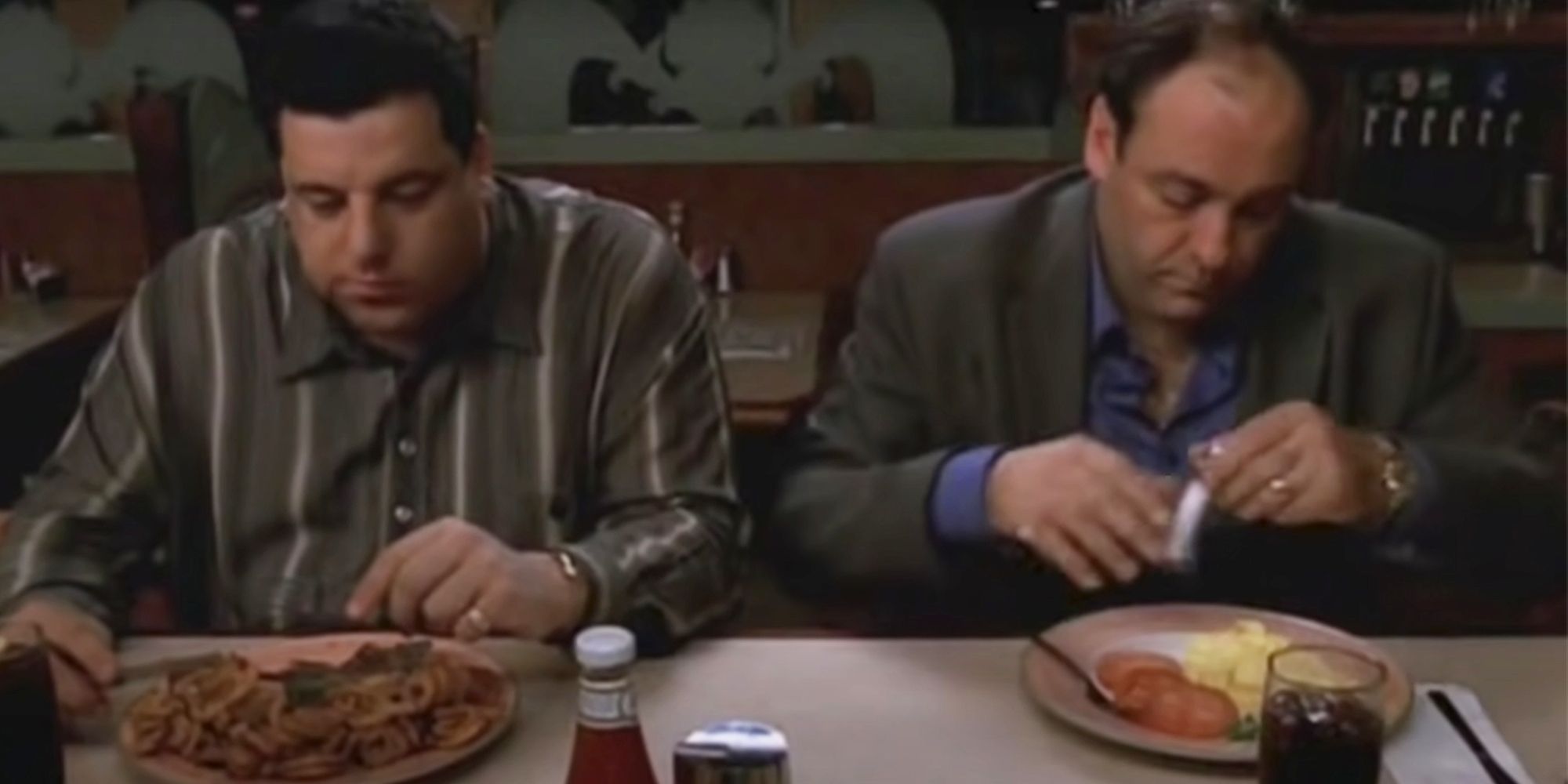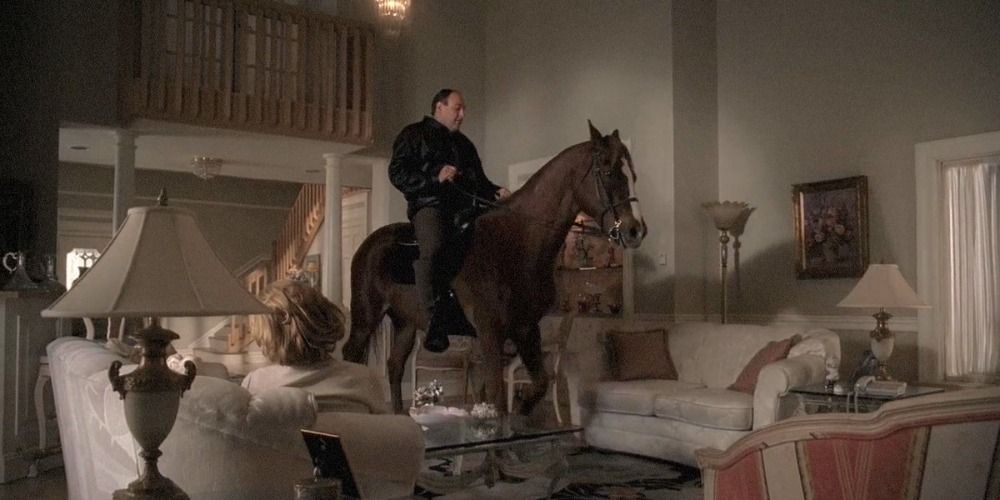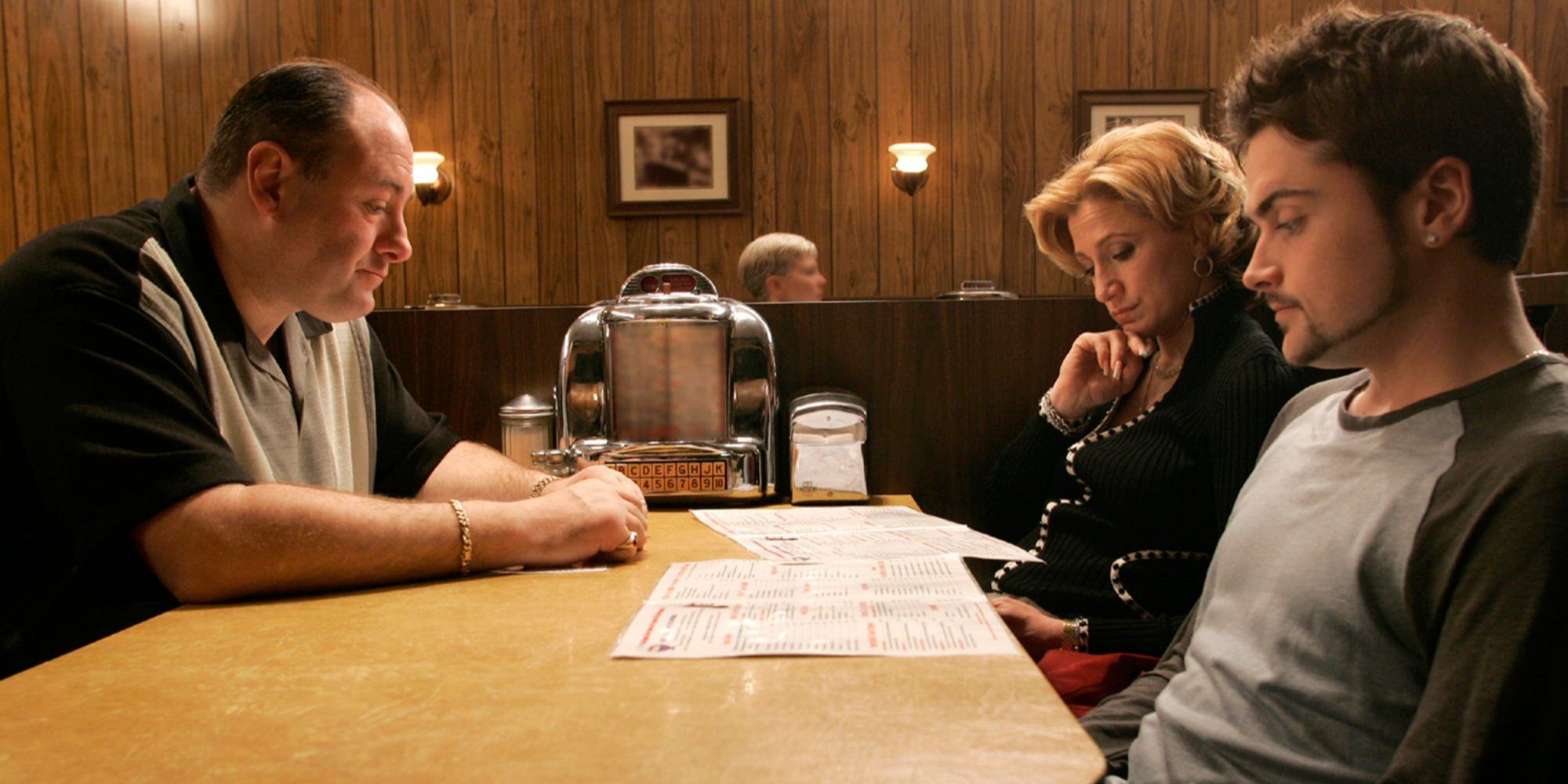To call any TV show the greatest of all time is admittedly a bold claim. There's a great deal of subjectivity when it comes to how much a viewer will enjoy any given show, and different people watch different shows for different reasons. Something that fails to resonate with a minority may mean a great deal to the majority, and vice versa. It makes the whole concept of declaring one show as the "greatest" a risky, maybe even futile venture.
That being said, if you wanted to claim one show is the best of them all, you could do a lot worse than picking HBO's The Sopranos as a contender. Airing for six seasons between 1999 and 2007, it blended dark comedy, gangster tropes, and family drama into one compelling whole, making for 86 episodes of near-perfect television. A crime-drama about one man's family, his business struggles, and his own personal issues happened to become one of the greatest works of entertainment in recent history, and the following 10 aspects of The Sopranos go a long way in explaining why.
James Gandolfini
Without a doubt, there would be no Sopranos without James Gandolfini. With Tony Soprano being an exceptionally complex protagonist who the audience will love, hate, be repulsed by, find amusing, feel sorry for, and find confusing all at various points in the series, whoever was selected to play him would need to have an enormous amount of talent.
With Gandolfini - who'd been a reliable supporting actor in various films throughout the 1990s, but seldom had a true starring role before The Sopranos - the show found its anchor. Everything Tony needs to be, Gandolfini pulls it off on screen. He makes Tony wholly understandable and human, yet enigmatic when he needs to be. A whole list devoted to everything Gandolfini does in the show to make the character work still wouldn't be enough. To cut to the chase: he's perfect in the role, and gives perhaps the best lead performance in television history.
Cinematic visuals
We take for granted how cinematic TV shows look nowadays, given how much money is spent on making the most high-profile ones look indistinguishable from films. However, back in the late 1990s, when The Sopranos first aired, TV shows tended to look noticeably lower budget and less cinematic than films.
It was one of the first shows to be shot in wide-screen, which already went a good way to making The Sopranos look exceptionally like a film. Each season was only 13 episodes long, too, in an era where most TV dramas had 20-25 episodes made per season. This meant those in charge of the show's visuals had more time to plan out intricate shots, experiment more with lighting, scout out visually striking locations, and so on, leading to a cinematic look for the show that continually pushed boundaries for what TV "could" look like.
The huge cast of characters
There were so many characters in The Sopranos, and all of them were entertaining and memorable, whether they were featured in all six seasons or just one episode. Every actor suited the character they played perfectly, and everyone brought their A-game to the show, helping to make every character in the show feel like genuine people.
Not that most viewers would know real-life members of the mafia, but everyone had character traits that are also recognizable among the world's law-abiding citizens. To pick even a handful of favorite supporting characters is a tough task, but fan favorites include the hilarious and terrifying Paulie Walnuts, the physically imposing but charming Furio Giunta, and the tragic yet often despicable Christopher Moltisanti.
Complex morality
Not every show made before The Sopranos had clear black vs white, good vs bad morality. Twin Peaks, for example, uniquely explored the nature of good and evil almost 10 years earlier, and HBO's other iconic late-90s show, Oz, had a cast made up mostly of prisoners (some sympathetic, some monstrous) in a high-security prison.
Yet The Sopranos really pushed the idea that no one is 100% righteous or 100% evil harder than any show before it, paving the way for future critically-acclaimed dramas of the 2000s (like Breaking Bad and Mad Men) to do something similar. Having a main character on a TV show be capable of murder whilst retaining likable qualities was mind-blowing to audiences at the time, though we might take it for granted nowadays.
Shocking plot twists/deaths
The Sopranos took risks by quickly establishing itself as a show where no one was safe. Characters had been killed off in TV shows before the year 1999, of course, but never as frequently or as abruptly as The Sopranos did it.
Gone were the days of characters "dying" because an actor wanted to leave the show. The writers behind The Sopranos made difficult choices in knocking off characters to make the show more realistic and suspenseful, and the unpredictability that comes with no one being safe is one thing that makes the show so engrossing (and often nail-biting).
The use of music
The Sopranos' brilliant use of music is something that tends to get overlooked when the show's best qualities are discussed. Of course, the opening song - "Woke Up This Morning" by Alabama 3 - is beyond iconic, but the efforts of those who selected the other songs the show uses shouldn't be ignored.
Almost every episode ends with a different song leading into the end credits, and it's staggering how often the lyrics and sound of each song neatly summarize or cap off each episode. It's always pre-existing music, and often obscure, but the songs picked for the show tend to sound like they were written for it specifically.
The comedy
The Sopranos is a drama, sure... but that doesn't mean it couldn't also be really funny. After all, there's a comedic element to the idea of a high-ranking mafia member attending therapy in secret, which is how the show begins. A comedy also released in 1999 had a similar premise, after all.
There's plenty of dark comedy throughout the show, tons of hilarious banter, and some generally absurd sequences that can be as funny as they are shocking. And then of course there's season 3's "Pine Barrens," which is one of the funniest TV episodes of all time.
The way it captures an era
The Sopranos is absolutely of its time, but in a good way. It perfectly captures the early 2000s in a way few other shows do, and it was unafraid to comment on the uncertainties and anxieties that defined life in America at the turn of the millennium.
It was likely intentional, but it's even clearer now, with its earliest seasons being more than 20 years old at this point. It adds another layer to the show, when watched today, and it's interesting to see how The Sopranos both shaped and reflected the culture at the time.
The surreal dream sequences
Part of exploring Tony Soprano as a character involves seeing his dreams, and as such, there are many dream sequences throughout The Sopranos. They even come to dominate some episodes of the show, including the season 2 finale, "Funhouse," and the appropriately-named season 5 episode, "The Test Dream."
The show does a phenomenal job of capturing the bizarre logic (or lack thereof) found in dreams, which often say a great deal about Tony as a character whilst also remaining eerie and mysterious. Few shows - if any - execute dream sequences better than The Sopranos.
The legendary finale
While it's not loved by all, everyone who's watched The Sopranos would have to admit that the show's final episode is memorable. It's a bold and disquieting finale, and the final shot of the show is particularly notorious, still sparking debates over what exactly it means.
However you choose to interpret it - or whether you're willing to accept you'll never know for sure - it's an impossible final episode to forget. After 86 episodes, it sticks with you and refuses to let go, helping The Sopranos to live on in the minds and hearts of many, 15 years after its conclusion.

.jpg)
